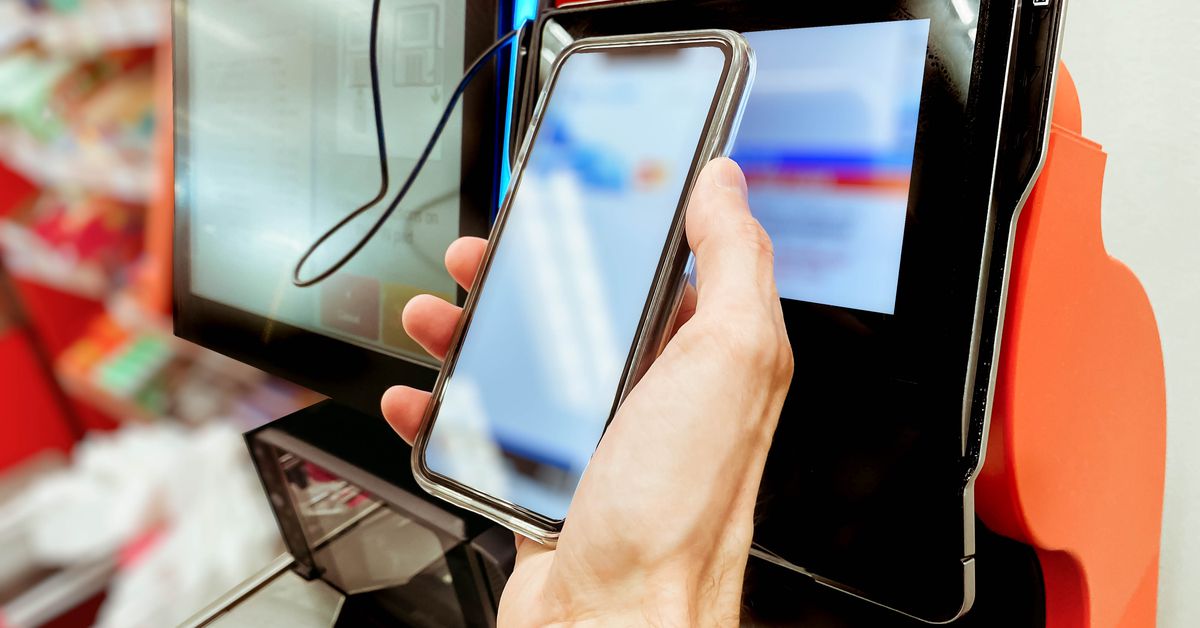
There are many reasons to be skeptical about the continued rise of self-checkout, primarily the loss of jobs as stores cut cashiers (the United States Bureau of Labor Statistics projects a 10 percent decline from 2021 to 2031). But a new report in the Los Angeles Times offers another one: that the US is in the middle of a loneliness and isolation epidemic, and self-checkout kiosks only worsen the situation.
Citing a May advisory from the US Surgeon General, which found that social isolation nationwide has been increasing for the past two decades, the Times depicts the value of “warm, low-stakes” relationships like that between shopper and cashier, especially for older people. According to University of Michigan professor Toni Antonucci, these kinds of connections are “a critical tool for maintaining emotional well-being later in life as social circles shrink.” As Sharon Hechler, cashier at Albertsons, told the paper, “We all need that human, personal touch.”
For better or worse, those low-stakes interactions are something we’re losing every day as we lean more on self-checkout, online shopping, and even grocery store robots. For some, this is a welcome shift: Small talk is hard and often bad, so why not just avoid it entirely? But more than just this broader trend towards isolation, I think the decline of small talk speaks to something sadder about how we perceive and interact with the world around us.
The discourse across social media suggests that the small-talk backlash goes beyond the checkout counter, touching all parts of service work. When the writer Bailey Herde posted on the platform now known as X about her frustration as a service industry worker with customers who refuse to engage in small talk, it was met with strong feelings in every direction. As Herde summarized in a subsequent post, the gist of the dissent was essentially “people don’t owe you their attention.”
Having been on both ends of the transaction (a shopper, as well as a cashier and barista), I acknowledge that sometimes, if not the majority of the time, small talk is awkward and ultimately pointless. Do the cashiers at Trader Joe’s, who are friendly to the point of spurring theories about whether there’s a company directive to flirt, really care how I use nutritional yeast? Have multiple people already told them that “it’s weird, but I really like eating it alone with a spoon”? I like to think I’m unique, but probably!
As a barista, it always felt silly remarking on the weather to someone who had just walked through it on their way to the coffee shop. And yet, I always looked forward to seeing regulars who I knew were good at banter. From both sides, small talk humanizes what is ultimately just a transaction. I don’t think a conversation being pointless means it’s not worth having.
The modern age dangles that carrot of the “frictionless existence” ever closer; the feeling that small talk must be avoided at all costs is a factor of this. With enough means we can get everything delivered, conducting our commerce through customer service chatbots or workers who might as well be chatbots given how we interact with them via app (“that replacement is okay,” we type back). We don’t even need means, really, to use self-checkout (though as the Times notes, it’s not an accessible option for everyone). Difficulty can be avoided, even that of awkward small talk.
While I don’t think checkout counter small talk is a stand-in for more meaningful conversations and in-person connections, I do think it’s a reminder of our interconnectedness in the world. We do, sometimes, owe people attention and reciprocity, especially when we are benefitting from their attention or services. Small talk upholds the social contract when we expect someone to bag our groceries, serve us dinner at a restaurant, or make our coffee the way we like it. Eliding small talk — or replacing it by only discussing logistical questions via grocery delivery app — doesn’t actually remove the other human from the labor of the transaction; it just minimizes them to the point that we can pretend they’re not there.
I want to live in a world of people, not screens. Sometimes that’s awkward, but other times maybe I provide someone with a great suggestion for an ingredient, or maybe a cashier’s compliment, however forced, gives me the verve to get through a bad day. Even if I sometimes make a fool out of myself at the register or say something I’m sure the cashier has heard 20 times that day, I’d rather that than a world of transactional silence.
